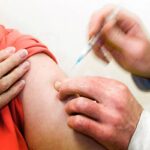As international travel rebounds to pre-pandemic levels, Alberta has emerged as the epicenter of North America’s most severe measles outbreak of 2024, with health officials recording 29 confirmed cases since January—a stark contrast to the province’s usual one or two annual cases.
The surge has sent shockwaves through Canada’s healthcare community, with epidemiologists pointing to a perfect storm of factors. Dr. Nisha Thampi, infectious disease specialist at CHEO Research Institute, notes that “what we’re witnessing in Alberta represents a concerning convergence of increased international travel and declining vaccination rates, creating vulnerability in our communities.”
Health records indicate that nearly 80% of Alberta’s cases have been linked to international travel, primarily from regions experiencing their own significant measles outbreaks. The Philippines, India, and parts of Europe have all reported substantial measles activity in recent months, creating transmission bridges to Canadian communities.
“The critical concern is not just the imported cases,” explains Dr. James Wilson, provincial health officer. “It’s the secondary spread occurring in communities with vaccination rates below the 95% threshold needed for herd immunity.” Several Alberta school districts report MMR vaccination rates hovering between 78-85%, well below protective levels.
The outbreak has placed enormous strain on Alberta’s healthcare facilities. Calgary’s Children’s Hospital has reported a 34% increase in emergency department visits since March, with isolation protocols further taxing already stretched resources. Hospital administrators have implemented special screening procedures and temporarily restricted visitor access to protect vulnerable patients.
Provincial health authorities have responded with emergency vaccination clinics in high-risk communities, but progress remains slow. “Vaccine hesitancy has created pockets of vulnerability throughout the province,” notes Dr. Theresa Tam, Canada’s Chief Public Health Officer. “These areas become kindling for measles transmission once a case is introduced.”
The financial implications extend beyond immediate healthcare costs. The Alberta business community reports growing economic impacts as parents miss work to care for sick children or those excluded from school due to exposure concerns. Economists estimate the outbreak could cost the province upwards of $11 million in lost productivity and healthcare expenditures by summer’s end.
Particularly concerning is the disease’s impact on indigenous communities. Health Canada reports that three remote northern communities have confirmed cases, with limited healthcare infrastructure complicating response efforts. Indigenous Services Canada has deployed emergency medical teams to affected areas, but geographical isolation presents significant logistical challenges.
Political tensions have also emerged, with opposition leaders questioning the provincial government’s preparedness. “This outbreak represents a preventable public health emergency,” stated NDP health critic David Shepherd. “The warning signs were present months ago when vaccination rates began declining, yet preventative action was inadequate.”
As summer travel season approaches, health officials warn the situation may worsen before improving. “Each international traveler represents a potential bridge for measles transmission,” cautions Dr. Wilson. “We’re particularly concerned about summer camps and tourism destinations becoming amplification points.”
The Alberta outbreak raises a critical question for all Canadians: in our interconnected world, how do we balance individual freedom of movement with collective responsibility for public health protection? The answer may determine whether this outbreak remains confined to Alberta or becomes the first chapter in a broader national health emergency.

























